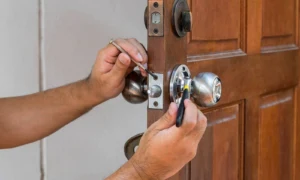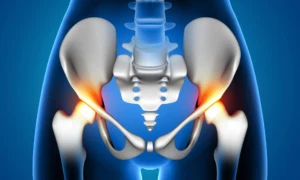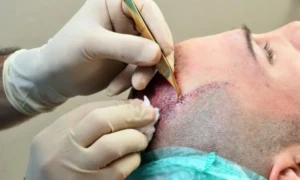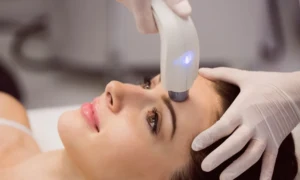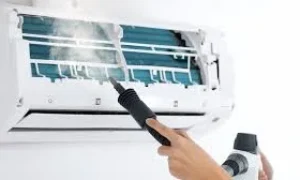Industrial floor cleaning machines are essential tools for maintaining cleanliness and hygiene in industrial facilities. To ensure their optimal performance and longevity, proper maintenance and cleaning practices are crucial. Regular maintenance not only extends the lifespan of the machines but also enhances their efficiency, leading to improved cleaning results. In this guide, we will provide you with valuable tips and best practices for the proper maintenance and cleaning of industrial floor cleaning machines.
Read the Manufacturer’s Instructions:
Before using or performing any maintenance on your industrial floor cleaning machine, carefully read and understand the manufacturer’s instructions. These instructions provide important information about the specific maintenance requirements, recommended cleaning procedures, and any safety precautions. Following the manufacturer’s guidelines ensures that you maintain the machine properly and avoid any potential damage or safety hazards.
Create a Maintenance Schedule:
Establishing a regular maintenance schedule is essential to keep your industrial floor cleaning machine in top condition. Create a schedule that includes routine tasks such as checking fluid levels, inspecting brushes and squeegees, cleaning filters, and lubricating moving parts. Adhering to a consistent maintenance routine helps prevent unexpected breakdowns and ensures that the machine operates at its best.
Keep the Machine Clean:
Regularly cleaning the machine itself is essential for its proper functioning. Remove any debris, dust, or dirt from the exterior surfaces and internal components. Pay special attention to areas prone to accumulation, such as the brush heads, squeegees, and filters. Use a soft cloth or brush to clean the surfaces, and avoid using abrasive materials that could scratch or damage the machine.
Clean and Replace Filters:
Filters play a crucial role in trapping dust, debris, and particles during the cleaning process. Clean the filters regularly, following the manufacturer’s instructions. If the filters are damaged or excessively dirty, consider replacing them to maintain optimal suction power and airflow.
Inspect Brushes and Squeegees:
Brushes and squeegees are vital components of industrial floor cleaning machines. Regularly inspect them for wear and tear, such as frayed bristles or damaged rubber blades. Replace any worn or damaged brushes or squeegees promptly to maintain effective cleaning performance. Additionally, clean the brushes and squeegees after each use to remove any accumulated dirt or debris that could affect their functionality.
Check Fluid Levels:
Many industrial floor cleaning machines require the use of cleaning solutions, detergents, or water for proper operation. Regularly check the fluid levels in the machine and ensure that they are adequately filled according to the manufacturer’s recommendations. Using insufficient fluid levels can lead to ineffective cleaning, while overfilling may cause spills or damage to the machine.
Lubricate Moving Parts:
Proper lubrication of moving parts is essential for smooth operation and to prevent excessive wear and tear. Consult the manufacturer’s instructions to identify the specific lubrication points and recommended lubricants for your machine. Regularly lubricate these parts to reduce friction and extend the lifespan of the components.
Store the Machine Properly:
When the industrial floor cleaning machine is not in use, store it in a clean and dry area. Avoid exposing it to extreme temperatures, direct sunlight, or moisture, as these conditions can affect its performance and cause damage. If the machine has removable components, such as brushes or solution tanks, ensure they are properly cleaned and stored separately to prevent contamination or damage.
Conduct Regular Inspections:
Perform regular inspections of the machine to identify any potential issues or signs of wear. Check for loose or damaged parts, leaks, unusual noises, or reduced performance. Promptly address any problems or contact a qualified technician for assistance. Early detection and timely repairs can prevent further damage and costly breakdowns.
Train and Educate Operators:
Proper maintenance and cleaning practices start with well-trained operators. Provide comprehensive training to your cleaning staff on the correct operation, maintenance, and cleaning procedures for the specific industrial floor cleaning machine. Educate them on the importance of following manufacturer guidelines and safety protocols. Encourage open communication, so operators can report any issues or concerns promptly.
Schedule Professional Servicing:
While regular maintenance can be performed in-house, it’s also beneficial to schedule professional servicing for your industrial floor cleaning machine. Professional technicians have the expertise and specialized tools to perform in-depth inspections, fine-tune settings, and address complex issues. Professional servicing can help identify potential problems before they escalate and ensure that your machine operates at its cleaning chemicals suppliers peak performance.
Keep Safety in Mind:
Safety should always be a top priority when maintaining and cleaning industrial floor cleaning machines. Before starting any maintenance tasks, make sure the machine is turned off and unplugged. Follow proper lockout/tagout procedures if necessary. Wear appropriate personal protective equipment (PPE) when handling cleaning solutions, chemicals, or when working on the machine. By prioritizing safety, you can prevent accidents and protect the well-being of your cleaning staff.
Document Maintenance and Repairs:
Keeping a record of maintenance and repairs is beneficial for tracking the history of your industrial floor cleaning machine. Create a maintenance log where you can document the date, type of maintenance performed, and any repairs conducted. This documentation will help you track the machine’s performance over time and identify any recurring issues that may require further attention.
Train Staff on Safe Handling and Operation:
Ensure that all operators and maintenance staff are properly trained on the safe handling and operation of the industrial floor cleaning machine. Emphasize the importance of following safety protocols, such as wearing appropriate personal protective equipment (PPE), using caution around moving parts, and understanding the machine’s controls and emergency shut-off procedures. By prioritizing safety training, you can minimize the risk of accidents and injuries.
Regularly Inspect Power Cords and Cables:
Inspect the power cords and cables of your industrial floor cleaning machine regularly for any signs of wear or damage. Frayed or exposed wires can pose electrical hazards and may require immediate attention. Replace any damaged cords or cables promptly to maintain safe and reliable operation.










